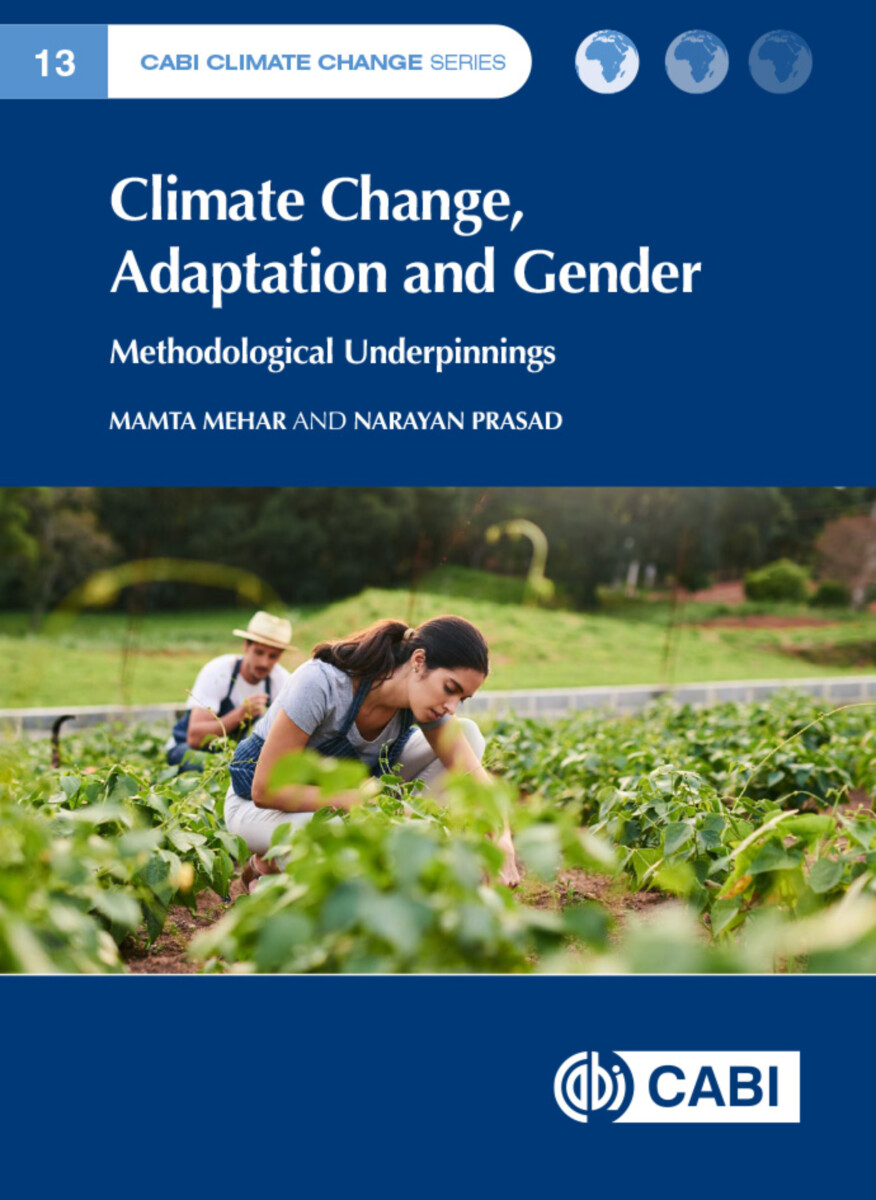Climate Change, Adaptation and Gender
Methodological Underpinnings
- Publisher
CABI - Published
30th November 2022 - ISBN 9781789249897
- Language English
- Pages 208 pp.
- Size 6" x 9"
This book offers a wide, in-depth study of the gender-climate change-agriculture nexus. Despite more than 40 years of research exploring this nexus, there is still ambiguity around the foundations, connections, and approaches for planning gender-inclusive climate policies. This volume clears that ambiguity.
- This is the first book to explore exclusively this issue in this detail
- The book reveals how and why consideration of gender is so important for understanding how climate change impacts on rural communities and agricultural systems globally
- The book explores every dimension of climate change (including belief systems and perceptions, knowledge, experience, coping strategies, adaptation and mitigation strategies) and links it to gender. It includes new theoretical and methodological approaches that go far beyond the household as the unit of analysis (using various approaches, including intersectional analysis)
This book will be of wide interest to students, scholars, and researchers, in gender studies, agriculture, climate change and rural development research, and also to practitioners, extension workers, and planners designing new climate-resilient practices.
Part I: Setting the Context
Chapter 1: Introduction
Part II: Gendering Climate Change
Chapter 2: Gender Matters in Agriculture and Climate Change
Chapter 3: Gender-inclusive Climate Policies
Part III: A Gender Analysis in Climate Events
Chapter 4: Farmer’s Cognitive Perspectives in Dealing with Climate Risk: A Narrative Review
Chapter 5: Data Triangulation Evidence
Part IV: Gender Responses to Climate Changes
Chapter 6: Coping Strategies and Adaptation Strategy: Framings and Perspectives
Chapter 7: Gender Inclusiveness in Climate Smart Agriculture
Chapter 8: Gender-differentiated Responses to Climate Risk: Conceptual Review
Part V: Gender and Social Inclusion Dimension in Farming System Analysis
Chapter 9: Unpacking Heterogeneous Nature of Stress and Risk During Crop Development Stages
Chapter 10: Gender, Climate Change and Sustainable Food Systems
Part VI: Methodological Underpinnings and Prescriptions for Future Research
Chapter 11: Gender Analysis: Perspectives and Research Framings
Chapter 12: Mediator and Moderator Variables in Gender Analysis
Chapter 13: Methodological Prescriptions for CSA implementation
Mamta Mehar
Dr. Mamta Mehar (PhD in Economics) has expertise in clientele-responsive agriculture and aquaculture innovative technologies, seed systems, digital agriculture, gender and climate change themes, inter-disciplinary approaches, and innovative methods and tools to analyze and interpret data. Over the past 10 years, she has worked with different CGIAR (Consultative Group of International Agriculture Research) organizations and hence different food crops and programs. In 2017, she was awarded a Borlaug fellowship by the U.S. Department of Agriculture. She has also undergone extensive sessions in Gender and Research Integrated Training (GRIT) organized by Pennsylvania State University (2017 and 2018). She is a contributing author in the latest assessment report of the IPCC (Inter-governmental Panel on Climate Change).
Narayan Prasad
Narayan Prasad has been professor of economics in the School of Social Sciences of Indira Gandhi National Open University (IGNOU), New Delhi, India since 2006, where he is also Director of a research unit, and Director of the Academic Coordination Division. He has designed and developed Research Methodology courses for Mphil and PhD students. He has published five books and presented and published research papers at several International and national forums. He is a frequent guest lecturer at universities internationally.


